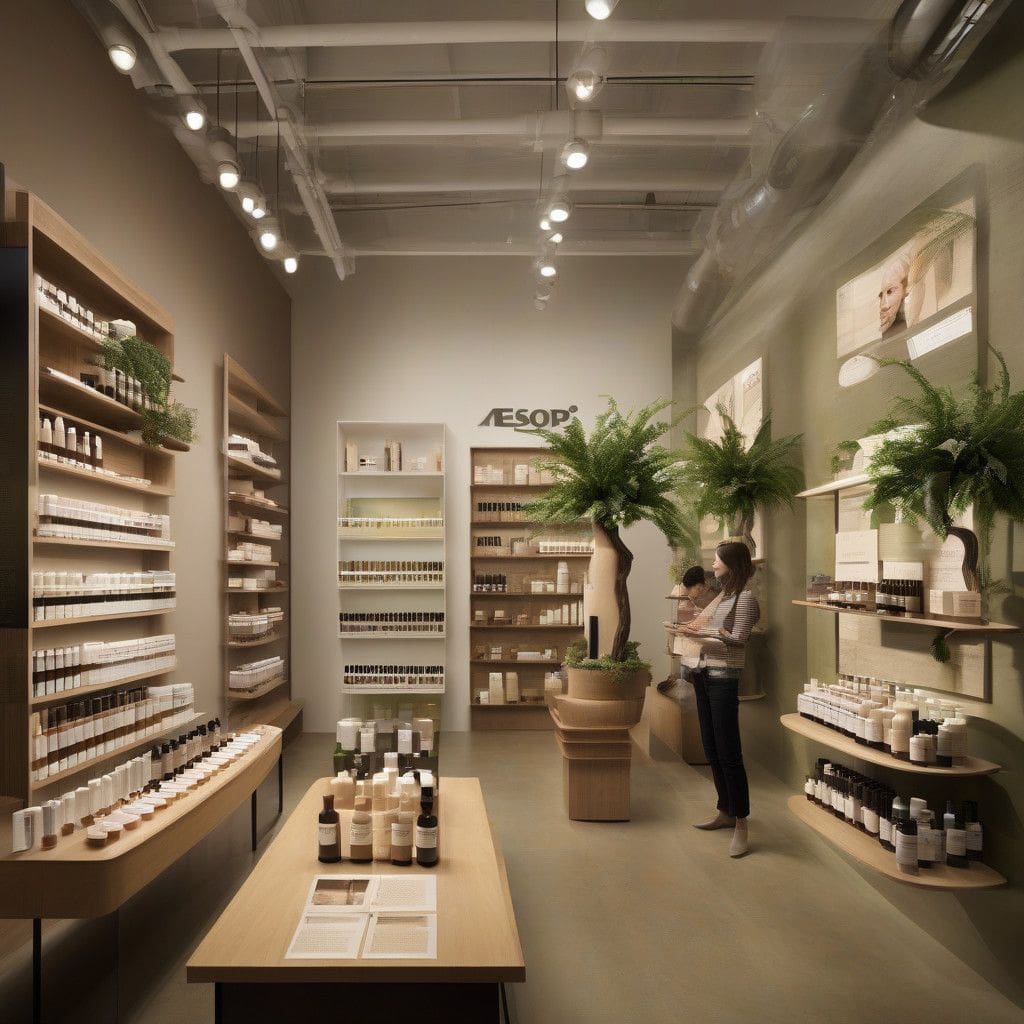In the realm of luxury skincare, Aesop stands out not only for its high-quality products but also for its innovative approach to employee development. Founded in 1987 by Dennis Paphitis, the Australian brand has grown into a global entity, boasting annual sales that soared from $28 million in 2012 to a remarkable $537 million by 2022. The acquisition by L’Oréal Luxe for $2.5 billion underscores its significant market presence. However, it is Aesop’s internal culture that has positioned it as a leader in nurturing employee talent, especially in its retail operations.
At the heart of Aesop’s strategy is the physical retail experience, with over 400 stores worldwide. The company emphasizes a collaborative effort between in-store teams and office staff, leading to a vibrant culture of learning. This collaboration fosters an environment where employees feel empowered to advance within the organization. Aesop encourages its retail consultants and store managers to pursue opportunities beyond their initial roles, making internal mobility a foundational principle of its work culture.
For instance, the company has implemented various training programs designed specifically to facilitate such transitions. Aesop’s retail development and catalyst initiatives equip employees with the necessary skills to take on more senior positions. Furthermore, the mentorship program spans a full year, providing guidance and support for employees seeking to elevate their careers.
Aesop is also pioneering its Facial Academy in the UK, allowing retail consultants to seek training as facial therapists, fully funded by the company. This new endeavor exemplifies a commitment to building a specialized workforce capable of providing unique services that align with Aesop’s brand ethos.
To illustrate the company’s approach to career development, I spoke with key Aesop employees: Ryad Djellas, the General Manager of Europe; Victoria Stamos, the UK’s Commercial Director; and Edio Mortoza, Store Manager of Aesop Marylebone, London.
Cultivating an Entrepreneurial Spirit
According to Ryad Djellas, Aesop actively promotes an entrepreneurial culture where authenticity is paramount. Each store is uniquely designed according to its locale, reflecting the brand’s commitment to individuality. Djellas highlights that the sense of being genuine is integral to both the corporate ethos and individual employee identities, fostering a strong sense of belonging.
One essential aspect of Aesop’s culture is the principle of internal mobility. Djellas outlines how existing employees are given priority during the hiring process for new vacancies, which not only sustains employee loyalty but also enhances career progression. Following the acquisition by L’Oréal, Aesop employees now have expanded opportunities across the L’Oréal family, enriching their career pathways and creating a sense of community that transcends company borders.
Leadership Support and Development Programs
As highlighted by Victoria Stamos, her journey from retail consultant to Commercial Director exemplifies Aesop’s dedication to employee growth. With limited management skills when she joined, Stamos was provided with various leadership training programs that helped her develop her management capabilities while honoring her unique leadership style.
Exceptional leaders within Aesop play a crucial role in this developmental environment. Stamos mentions the importance of constructive feedback and coaching, which are as vital to the culture as formal training. This approach encourages employees to navigate their career paths authentically, rather than conforming to a singular model of leadership.
Building a Unified Community
Community engagement is another critical element of Aesop’s workplace culture. Edio Mortoza spoke about the connections cultivated between store teams and office staff, which significantly eases the transition when moving into corporate roles. Monthly lunches at the head office provide opportunities for employees to collaborate and bond, fostering relationships that enhance teamwork.
Additionally, networks such as Aesop Women and Allies empower associates to share their experiences, advocate for policies like parental leave, and strengthen their voices within the company. These initiatives not only build community but also create tangible impacts that reflect employee contributions.
Global Networking and Shared Learning
Aesop also facilitates shared learning among its global locations. Employees are encouraged to experience different store environments and practices worldwide. Mortoza recounted his opportunity to assist in a store in Copenhagen, which allowed him to appreciate the brand’s global diversity and how different markets interact with Aesop’s offerings. Such experiences broaden employees’ perspectives and deepen their understanding of the brand’s global strategies.
Overall, Aesop’s commitment to career development is not just an HR initiative but a foundational aspect of its corporate identity. By prioritizing authenticity, providing robust training programs, and fostering community relationships, Aesop successfully transforms retail employees into industry leaders. As the company continues to grow, its focus on employee development will undoubtedly reinforce its status as a trailblazer in luxury skincare.












